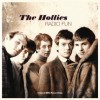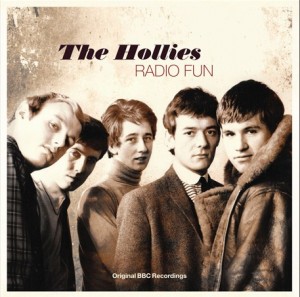Among the many things to thank the B.B.C. for, somewhere near the very top should be that unlike the amount of early pioneering television programmes that were wiped to save money and space, at least the corporation managed to have the foresight to know where they could lay their hands on the early recordings of some of the more influential pop groups of the sixties.
With that in mind, an even bigger thank you the B.B. C. should be mentioned for keeping some of the seminal performances by one of the finest bands to come out of East Lancashire/Manchester area – The Hollies. It seems the ‘norm’ now for a band to have a session or two somewhere under their belt out on release, capturing the moment when a band could record in a studio without the hordes of screaming fans drowning out the music and the vocalist, (something that would later irritate guitar player and vocalist Graham Nash to the point where he quit the band and ended up in one of the first supergroups, Crosby, Stills and Nash.) Back then though you had to be very special, a certain something in amongst the early trend setters that set the musical bar very high for decades to come.
The new release by the B.B.C. and The Hollies, the wonderfully titled Radio Fun sees the band in their prime on such radio programmes as Saturday Club, Top Gear and surprisingly two very good quality recordings from television’s Top of the Pops, including the band’s run- away single success of He Ain’t Heavy, He’s My Brother.
The 32 songs on the single disc showcase the band between the years 1964-1971, arguably the heyday for the band and the three line-up changes they underwent during this time. This really shouldn’t be looked upon as a greatest hits package as that would be grossly unfair to the nature of the album. With songs such as the Graham Gouldman, later of 10cc, composition of Bus Stop being included, the great Charlie and Fred and a fine recording of Lawdy Miss Clawdy from Saturday Swings, this collection of songs shows the power of the three part harmonies of Graham Nash, Allan Clarke and Tony Hicks off superbly and the musical arrangement the band was nothing short of spectacular. Nowhere does this show up perfectly than on the song Too Young To Be Married from a 1971 recording of the then British television institution Top of the Pops.
In an age where the radio was king and be played on the B.B.C. was a privilege, no matter whether you were The Beatles or The Hoillies, these tracks serve as a testament to an era that sadly is missed.
Ian D. Hall

